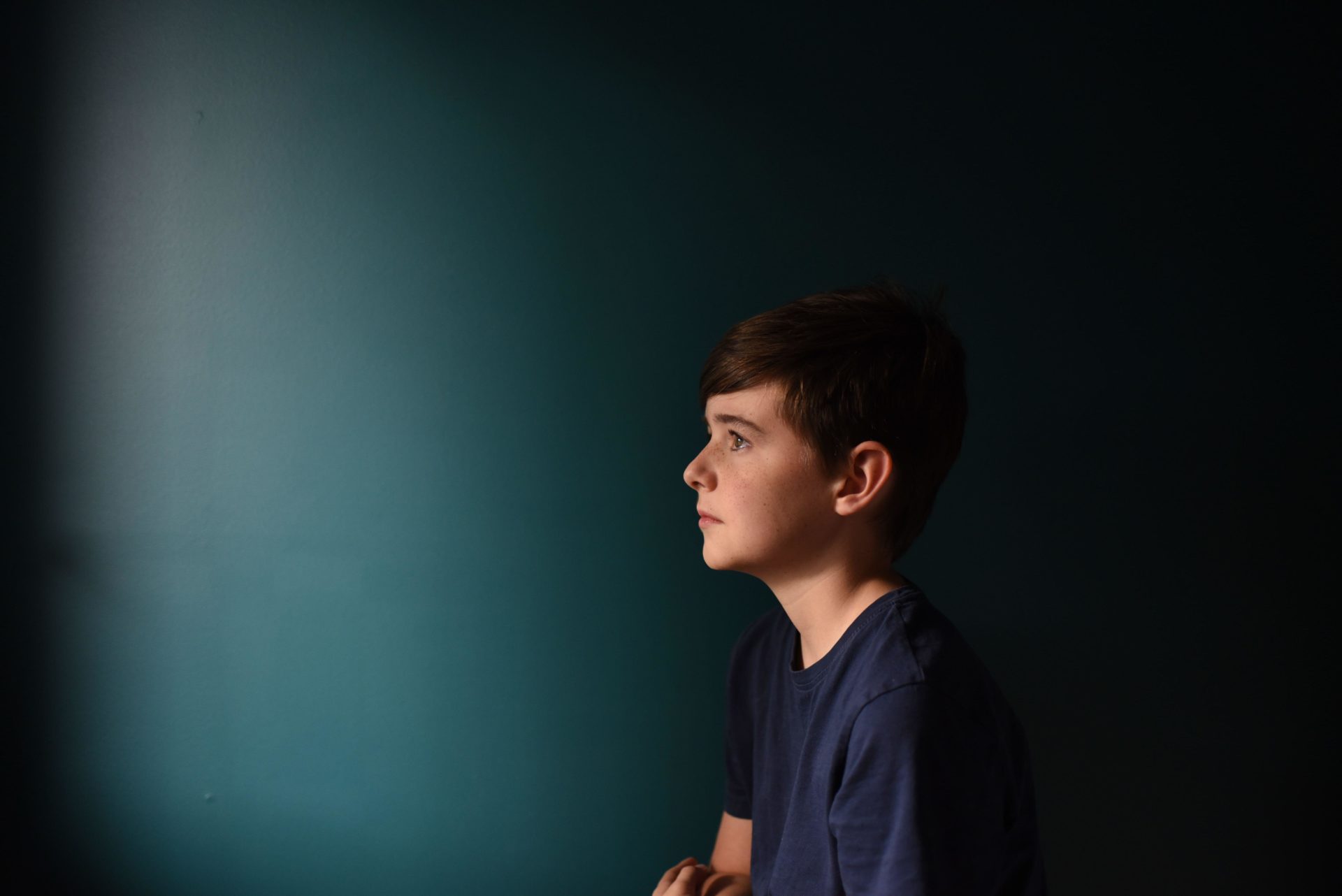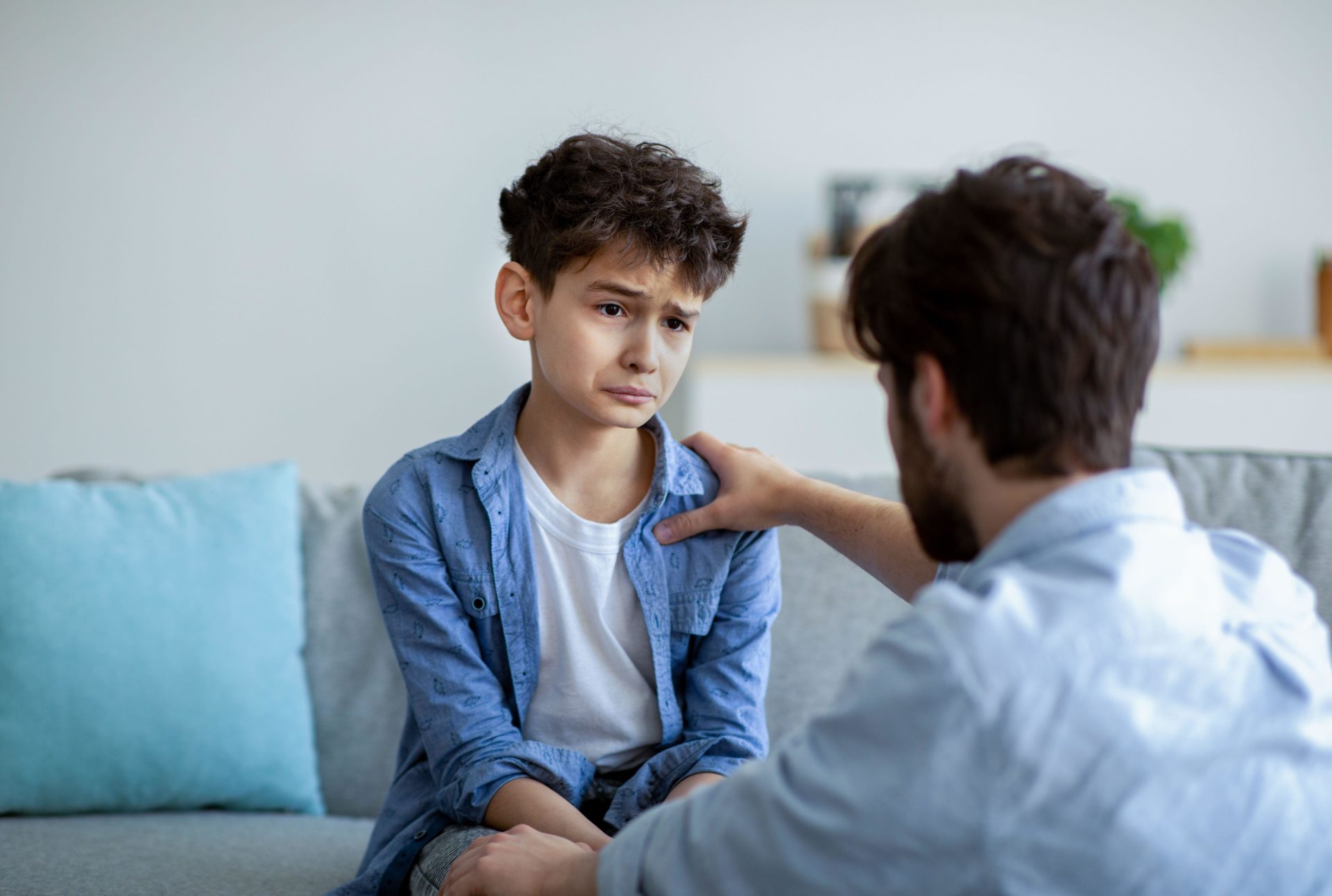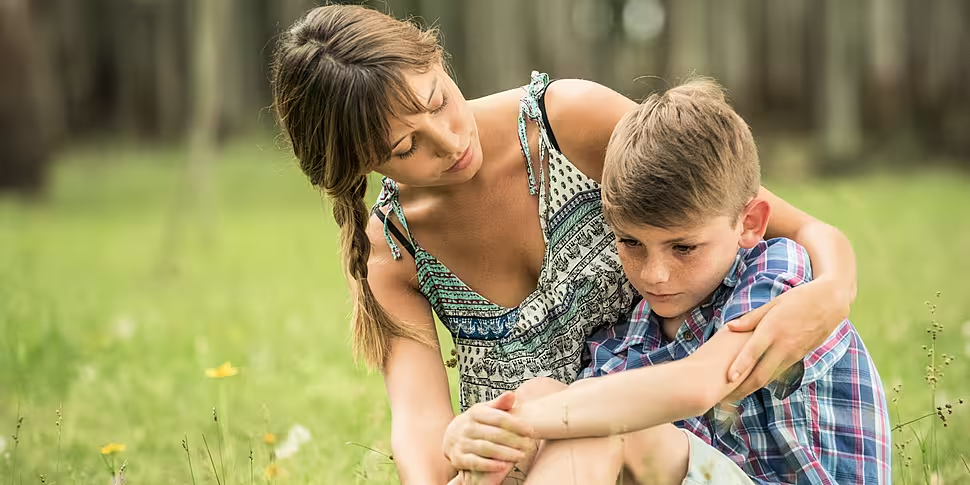A death in the family can be incredibly difficult for adults to cope with, never mind young children.
This week on Parenting, one mother asked how to explain to her kids that their grandmother doesn’t have long left to live.
“My mother-in-law is currently in palliative care,” she told Moncrieff.
“Her illness has absolutely devastated us, and I’m so worried as to how to deal with this next phase of our lives.
“She was a super involved grandmother, and I know the kids will be distraught.
“Our oldest is eight, the youngest is four.
“They know she’s sick, and I think the eight-year-old has a good understanding that granny won’t be coming home, but I just want to prepare them if I can.
“How do I explain that granny is very sick and soon there will be a funeral? How much should I tell them, or how much should I protect them?”
 Portrait of a sad young boy against a dark blue wall. Image: Cavan Images / Alamy. 17 November 2021
Portrait of a sad young boy against a dark blue wall. Image: Cavan Images / Alamy. 17 November 2021Family psychotherapist Joanna Fortune said it is important to remember that situations like this are difficult for adults as well.
“It can be very easy to fall into this piece of, ‘Oh, I’ve got to think about the kids and focus on the kids’,” she said.
“The best thing you will do for your kids is focus on yourself and really give yourself permission to feel how you’re feeling.
“This is a sad and scary time, and it is an absolute loss of control because you can’t stop it, and it brings up all those feelings, even when you know there’s good care happening.”
Honest conversation
Joanna recommended a frank conversation with the kids to ensure they understand what to expect.
“Talk to them honestly in very clear messaging; no ambiguous language, no vague terminology - ‘passing away, going’ - none of that,” she said.
“You will have to say to them – particularly the eight-year-old - ‘Sadly, granny’s life will end soon’.”
 Father and sad son having heart to heart talk at home. Image: Prostock-studio / Alamy. 10 March 2021
Father and sad son having heart to heart talk at home. Image: Prostock-studio / Alamy. 10 March 2021According to Joanna, while the eight-year-old is probably fairly clued in, it shouldn’t be assumed he understands exactly what death means.
“I think it is very important to sit with the eight-year-old separately, because developmentally they’re very different,” she said.
“Say, ‘Tell me what you know, what’s the story you’re telling yourself about granny?’ And then, ‘I’m going to tell you the story about granny’ - but do it together in the shared storytelling.”
The funeral
When it comes to the funeral, Joanna said it is up to the children’s parents to judge whether they should attend.
If they are present, Joanna recommended involving them in the ceremony as much as possible.
However, if their parents choose not to bring either one or both children along, Joanna said they could draw a picture to be placed on the coffin, so they still feel included in the ceremony.
Main image: Mother comforting son outdoors. Image: PhotoAlto / Alamy. 11 October 2016









